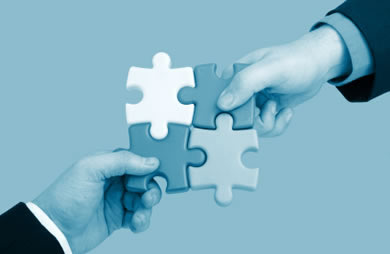|
When you got nothing, you got nothing to lose. You’re invisible now, you got no secrets to conceal. How does it feel To be on your own With no direction home Like a complete unknown Like a rolling stone? Bob Dylan Like a Rolling Stone If you’re wondering what a couple of characters in a Bob Dylan song (Like a Rolling Stone) have to do with coping with depression (the subject of this series of blogs), so am I. But it made a lot of sense to me last night when I was listening to the song (a nightly ritual), so I thought I’d see if it still makes sense when I try to write about it. I think that most people who are or who have been depressed will see the connection between depression and what Dylan is talking about in the lyrics from what may be his best song (and, imo, the best song of its generation and genre). The feelings of isolation, being different, having no purpose or direction, not being seen or known as you “really” are and not even really knowing yourself, finding no real pleasure in your life or your activities, and just rolling through life detached from your customary landscape—all of these are basic symptoms of depression. (Back in the pre-Prozac days when Dylan wrote the song, this package of “symptoms” would probably have been called “alienation” rather than “depression,” but that’s another story). But Dylan also seems to suggest they are quite a bit more than mere symptoms of an illness. In Like a Rolling Stone, all of this sounds more like a necessary rite of passage than an illness or a personal problem. In order to move beyond the unconscious, unsatisfying life of “fitting in” with the crowd and its dubious and often oppressive collective values, into a fuller, more individualized and self-chosen life, we have to become depressed for a little while, at least. We have to recognize that life as we have known it so far really isn’t the whole story—and that more is required of us, and more is available to us if we make the effort. We have to recognize and experience this on a feeling level, not just a philosophical one. The first stage in this process is becoming dissatisfied on a deep level with what we’ve already got, what we’ve already done, and who we already are—i.e., getting depressed. Unfortunately, this doesn’t seem to lead directly to sudden enlightenment and a clear sense of what’s really important and what we ought to do. Instead, the next step is about recognizing that we have to “compromise with the mystery tramp,” learning essentially how to live with one foot in two worlds—the world of what we can no longer be satisfied with, and the undefined world of our own creative vision. But that second world has not yet been created, because we've been too depressed to try. Which means we have to commit to it without knowing what we’ll get out of the deal in advance. Not all things are possible for us. It’s not like we can literally do anything and everything we want, once we decide what that is. We have our own limitations, we have to consider the needs of those attached to us, and we live in a finite and unpredictable world where things don’t always go as planned, no matter who we are. In short, every choice means leaving something else behind. And we can’t be sure that the choices we make in terms of where to focus our energy and effort are the “right” ones. In Dylan’s terms, we have to “stare into the vacuum of [the mystery tramp’s] eyes and ask him do you want to make a deal.” And what the mystery tramp has to offer is the possibility of liberation from our own shame: When you got nothing, you got nothing to lose You’re invisible now, you got no secrets to conceal. Without our images, schemes, and objects to protect, and our secrets to conceal, we’re finally free to be ourselves, and that is the foundation on which all development or progression from here on out depends. But the price we pay for this liberation is becoming even more invisible to those who aren’t taking this journey themselves. One way or another, it seems, we’re stuck with some kind of being invisible. We can be invisible to ourselves by remaining stuck in the unproductive, uncreative suffering of depression where all anyone (including us) sees is our symptoms. Or we can be invisible to others by undertaking a private, interior journey where we try to turn our suffering and our symptoms into clues about what kind of changes we need to make in our personal lives. This latter kind of invisibility may be less painful and more rewarding, but it is still less than what we probably need, and is its own kind of suffering. But maybe there’s another option. What if we take seriously the option of joining forces with “napoleon in rags” and add our own voices to the language he uses? It may not be popular in our culture of medicalized human problems and quick, consumption-based fixes for everything that bothers us. What if we try to become artists at expressing our own experience of depression? Instead of describing our symptoms and talking about all the medications and therapies we’ve tried, what if we talk instead about our desires and needs, fears and insecurities, hopes and dreams--and ask why they aren’t portrayed every place we look, like the other images our culture has seized on to define the world of human aspirations. All we really need to do is learn how to express what it feels like to be a rolling stone. OK, rant over. Now, back to our regular programming. Some of you may be wondering what developed after my last blog, about going in for ECT therapy. Well, that’s an interesting story all by itself. I was feeling pretty proud of myself last week, after cleverly deducing that the message the Universe has been trying to send me has something to do with not isolating myself so much, and developing more “real-world” relationships and activities. And I was pretty sure I was taking the appropriate steps to remedy this situation by using ECT to help me out of my depression as quickly as possible, so I could bravely tackle the world of face-to-face relationships, on my own, undepressed terms. A less biased observer might have noticed that there’s a pretty basic misfit between the goal (getting more involved socially) and the method (electroconvulsive therapy) in this plan of mine. And that my resolve not to “medicalize” my symptoms evaporated pretty quickly, and turned into a desire to get rid of them by the quickest means possible, instead of trying to learn something from them. I suspect that’s why whoever’s in charge of delivering messages from the Universe decided that I need something a little more forceful and direct than the normal signaling methods. And that’s exactly what I got… Last Tuesday night, I was in the behavior health unit of a local hospital, getting ready for an early bedtime so I that I’d be ready for my first ECT session the next morning. I was heading to the bathroom when, the next thing I knew, I found myself waking up in bed, in the regular medical section of the hospital, with a cast on my lower leg. Apparently, I had passed out while walking to the bathroom (thanks to several medications that tend to induce positional hypotension), fallen, and broken my ankle in a couple of places. It was a day and half later when I woke up, and I had missed my ETC session. When I asked about my ECT, and when I’d be going back to the behavioral health unit, I was told there were no beds available there, and that I had been taken off the ECT schedule, since no one knew how soon I’d be ready to do it. Now, I can be pretty dense sometimes, but even I got this message. No ECT, at least for now. Instead, I will try to spend the next three months of enforced physical idleness (no biking or hiking—yikes!) seeing what other approaches to remaining (or getting?) sane I can come up with. You’ll be the first to know what I come up with, or don’t. What do you think? How do you talk about depression (your own or others)--as symptoms and remedies, or as a clue to something bigger? Are you willing to start thinking of your depression as the beginnings of a new way of life, instead of as psychological symptoms--or does this make no sense at all to you? |
Popular EntriesMore From SparkPeople
|















